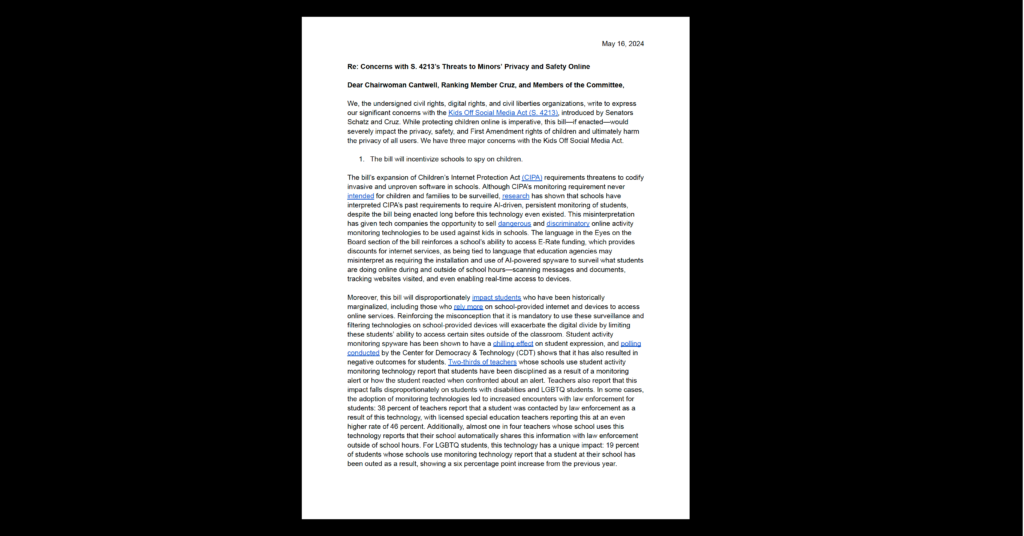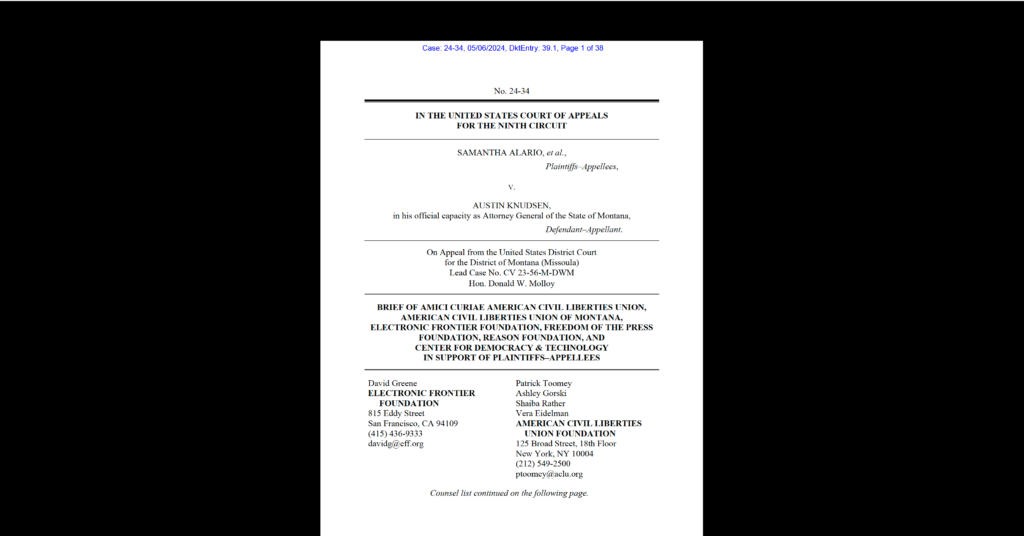Welcome to San Francisco – Next Stop, Cairo?

Photo by Curtis Fry
Two weeks ago, Bay Area Rapid Transit (BART) authorities shut down mobile phone service in several underground stations in an effort to impede a planned protest of a recent shooting by BART police. The move backfired, leading to more protests, in response to which BART closed several stations during rush hour. Nevertheless, officials insisted that they had acted within their authority, and they reserved the option of shutting down phone and Internet service again. The BART board meets tomorrow (Wednesday) to consider the matter.
The BART action sent a terrible signal to rest of the world, inviting comparisons to former Egyptian President Mubarak’s order cutting off Internet access to squelch protests challenging his government. With Internet freedoms threatened around the world, government officials in the U.S. should not be shutting down communications networks, even temporarily and even in response to legitimate concerns about public safety in the face of unruly demonstrations.
Closer to home, the justifications offered by BART officials displayed confusion about the mandates of the First Amendment and completely missed the Constitutional significance of the mobile phone network and the voice and Internet communications it supports.
Traditional First Amendment law divides the physical world into those places that are “public forums” and those that are not. Public forums are the streets and parks, where any government restriction on speech must meet a very high burden. BART officials have said that the train platform is not a public forum, and in that they are almost certainly right. The Supreme Court has held that even the shopping mall-like area of an airport is not a public forum under the federal Constitution. While the California Supreme Court has held that a train station is a public forum under the state constitution, even the California court would likely rule that raucous demonstrations can be prohibited in the area right by the train tracks and that protesters have no right to block doors and interrupt train service.
However, BART ignored the huge difference between protesting on the BART train platforms and talking about protesting on the BART platforms. BART was clearly wrong in saying, as it did in a statement issued soon after the first shutdown, that all “expressive activities” are prohibited on the BART platforms and trains. To the contrary, even on the platform or train, a passenger has the First Amendment right to wear a button saying “BART stinks” and one person cannot be prohibited from saying to another “I think BART is mishandling these protests.”
Moreover, BART’s legal analysis missed a crucial point: that there is another “forum” at issue, not the physical forum of the train platform but the virtual platform of the cell phone and wireless Internet communications network. The telltale flaw in BART’s legal analysis was that, on the day in question, it did not shut down the physical platform, but rather it shut down the cell phone and Internet platform and in the process it quashed clearly lawful speech.
Wireless coverage within the BART system, enabling both voice and Internet communications on mobile phones, is relatively new. BART describes it as a “convenience.” But once that convenience is allowed by a governmental entity, First Amendment protections apply. In offering its property to cell phone antennas, BART created a “virtual public forum,” and it could not then turn the system on and off based on the expediency of the moment. (As Harold Feld at Public Knowledge explains, turning off part of the telephone network also violates the Federal Communications Act.)
BART claims that it was acting within the scope of a 1969 Supreme Court decision, Brandenburg v. Ohio. But Brandenburg is very narrow. The U.S. Supreme Court said that the government could punish advocacy of the use of force or of law violation only “where such advocacy is directed to inciting or producing imminent lawless action and is likely to incite or produce such action.”
The BART action did not suppress only speech meeting the incitement test. BART shut down all speech over the cell phone network in the stations. Brandenburg does not justify suppressing all the speech even of the protesters in the train stations; under Brandenburg, only the statements likely to incite imminent violence can be banned or punished. And the BART shutdown went far beyond the communications of the protesters, blocking the worker calling home to say “Honey, I’m ok but I’ll be late,” the rider texting a co-worker still back at the office to say “Don’t take BART today, it’s dangerous,” the protester having second thoughts and telling friends, “This is out of hand, let’s back off,” and the journalist calling in a report from the scene. All were shut down by the BART action, failing a fundamental test of government actions under the First Amendment, which is that they must be narrowly targeted.
It is conceivable that some short interruptions of service would be justifiable even under the robust protections of the Constitution. It has been reported, for example, that the Secret Service interferes with cell phone service around the President because a cell phone signal can be used to trigger a bomb. But shutting down a general-purpose communications network is justifiable only in extremely rare situations, and only in response to concrete, specific, and imminent harm. A general desire to prevent disruptive, even dangerous activity should not be adequate.
A total shutdown of the Internet in the U.S. is highly impractical, but the BART incident shows that communications nodes can be highly vulnerable. Moreover, they pose a tempting target to government officials seeking a shortcut to public safety. In the UK, government officials shaken by riots toyed with the idea of interfering with communications services. In the U.S., other government officials, under the pressure of the moment, may likewise seek to cut off communications to a locale or through a particular service. Too facile an application of traditional concepts such as the public forum doctrine could seem to support such hasty overreaching.
That is why the San Francisco case is so important. BART should send a message to other government officials. The mass transit system for a corner of Silicon Valley should admit that what it did was a mistake, both under traditional legal rules and under a vision of the First Amendment suitable for the digital age.


